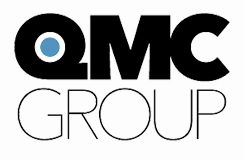Sustainability has become a core value for many consumers and businesses. However, as brands rush to position themselves as environmentally responsible, a growing challenge has emerged: greenwashing.
What exactly is greenwashing? Greenwashing is the practice of making misleading, exaggerated, or unsubstantiated claims about a company’s environmental practices or a product’s eco-friendliness. Greenwashing can take many forms, from buzzwords like “eco-friendly” and “natural” on product packaging (with no supporting evidence) to images of greenery and leaves in a direct mail piece that implies sustainability without proof.
Greenwashing creates the illusion of environmental responsibility without corresponding action.
Why Greenwashing Matters
Greenwashing isn’t just ethically questionable. It can be risky for your brand. Companies that make false or misleading sustainability claims erode consumer trust and risk long-term damage to their reputation. Greenwashing also undermines genuine sustainability efforts by making it harder for consumers to identify brands that are genuinely committed to environmental change.
How to Avoid Greenwashing in Your Marketing
If your company is looking to communicate its sustainability efforts, here’s how to stay credible and avoid falling into the greenwashing trap:
- Be transparent: Openly share your sustainability goals, progress, and challenges. Let customers see the whole picture, even if you’re not perfect.
- Back up claims with data: Replace vague claims with specific ones. For example, instead of “environmentally friendly,” consider using phrases like “made with 80% post-consumer recycled material” or “produced using renewable energy.”
- Seek third-party certifications: Certifications like ENERGY STAR® or USDA Organic add legitimacy to your claims and reassure skeptical consumers.
- Watch your language: Avoid emotionally charged or misleading terms, such as “deforestation-free.” Use measured, honest language that looks like information, not a tactic.
Keep Your Customers’ Trust
Greenwashing may offer short-term gains but comes at the cost of long-term trust. Today’s consumers don’t expect perfection, but they do expect honesty. Show them your commitment, back it up with action, and you’ll stand out in a world full of empty chatter.


